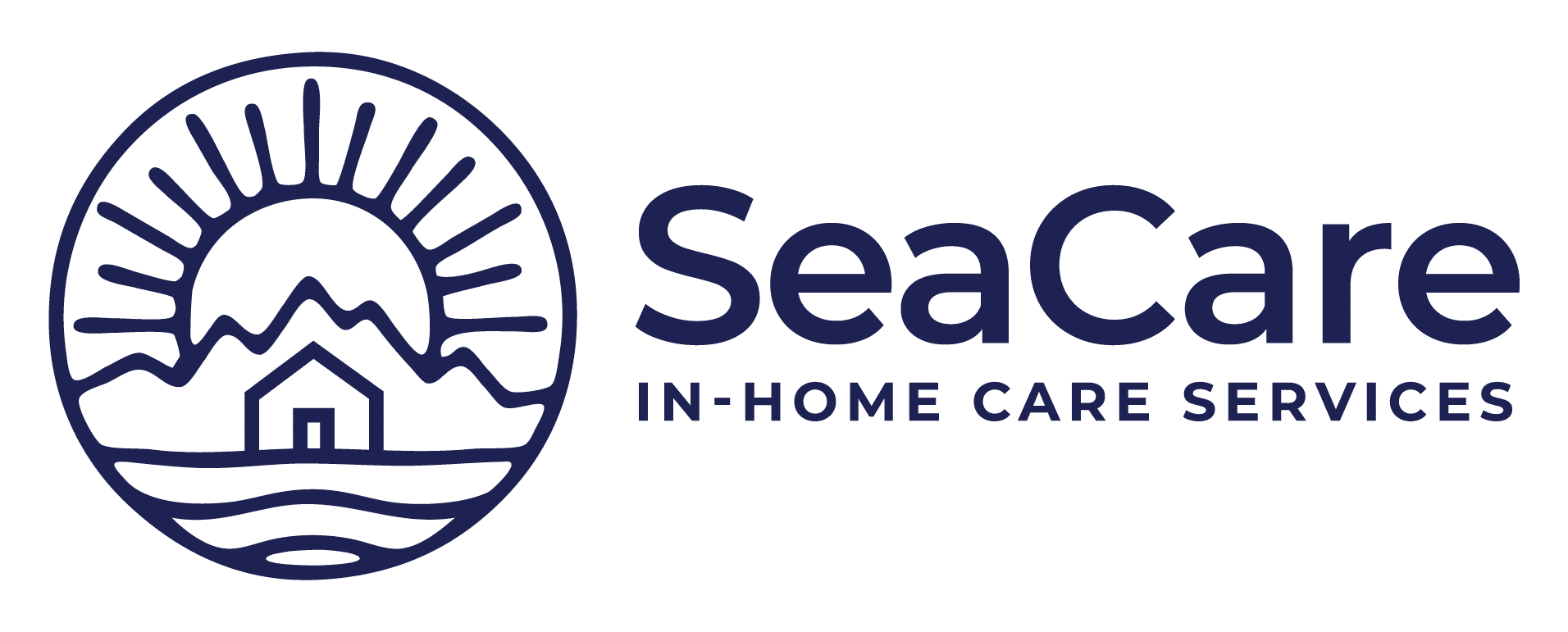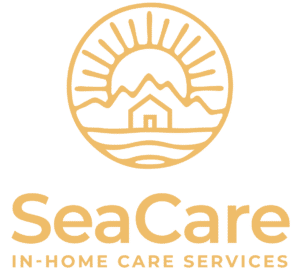Spring brings promise of financial relief for family caregivers
by Katie Wright | Mar 31, 2021 | family support, Family caregiving, resources on aging | 0 Comments

Spring has officially arrived, a welcome renewal and a reason for optimism in itself!
You’ll be glad to learn we have more than just increasing daylight hours and blossoming trees to celebrate. At SeaCare In-Home Care Services, we like to stay on top of news and developments favorable to seniors and caregiver families, along with resources to lighten your load.
We have some new information to share, along with a reminder about ways to reduce your tax bill when filing your Federal Income Tax Return.
It’s a season of hope, with more sunshine and warmer days in our near future. Things are looking up!
Promising legislation for seniors
The American Rescue Plan Act of 2021
In brief, the American Rescue Plan just signed by President Biden provides some economic and social relief for older adults and has promise for keeping us on track to more fully fund the Older Americans Act (OAA) over the next several years.
The OAA, first enacted over 55 years ago, provides funding for many senior services – caregiver support and in-home services, healthy aging programs, and nutrition services, among others.
The American Rescue Plan Act includes $1.43 billion for OAA. Here are some provisions to cheer about:
- Support services to address social isolation and provide COVID-19 vaccination outreach
- Nutrition services, including meals via home delivery
- The National Family Caregiver Support Program, offering training, counseling for caregivers, and respite care
- Support for Native American communities, including nutrition services
- The Long-Term Ombudsman Program, which advocates for those living in nursing homes.
The Rescue Plan also includes:
- Additional funds for Medicaid home care services to provide more seniors and people with disabilities to stay home with their families
- Infrastructure and transportation funding to aid in recovery of transit systems, which are essential for many older adults
- Funds for the Elder Justice Act to enhance protections for nursing home residents and support research for elder justice
- More COVID-19 funds (on top of those allocated to OAA) for managing nursing home outbreaks and infection control, increased testing, and more widespread vaccine distribution
On the health care front, the Affordable Care Act is getting a boost to help an increased number of older adults who aren’t yet eligible for Medicare.
- There will be health insurance tax credits, and low-income families are entitled to coverage with no premiums
- More states will be encouraged to adopt expanded Medicaid via increased federal matching payments. Washington State has had expanded Medicaid in 2014, but this is encouraging news for our friends and family in other parts of the country.
- There are more funds for access to mental health services and prevention. This means additional help for isolated older adults.
A champion for seniors is confirmed as HHS Secretary
In other positive news, the U.S. Senate recently confirmed the new Secretary of the U.S. Department of Health and Human Services (HHS), Xavier Becerra. He is known for his advocacy for older adults’ healthcare. HHS provides oversight of Medicare, Medicaid, and the OAA, among other services.
During the time he served as a member of Congress and California Attorney General, Secretary Becerra was outspoken in the effort to safeguard Social Security benefits. In his new role, he is expected to strengthen Medicare and steer it away from the former Administration’s plan to increase costs and privatize the federal health insurance program.
Secretary Becerra says his work addressing the COVID-19 pandemic will include confronting the behavioral health problems aggravated over the past year due to isolation and uncertainty – an increase in suicides, addictions, and mental illness.
Additionally, he plans to deliver the coronavirus vaccine to meet people where they are, in rural locations, workplaces, construction sites, and farm fields, which will help to alleviate ethnic and racial inequities in vaccine distribution. When more people are vaccinated, we’re all safer.
Tax-time reminder for caregivers: get the tax breaks you’re entitled to
Quick disclaimer: the information included below is for your information only, and is based on the 2020 tax year. Please consult a tax expert or the IRS for details.
According to AARP, costs associated with family caregiving average around $7,000 per year. This can come as a surprise to newer caregivers who thought their primary expense would be in the form of time they devoted to their loved ones’ care.
Thankfully there’s potential to lessen tax burdens due to deductions and federal tax credits for caregiving expenditures. These provisions are not new. Expanded in 2017, the Child Tax Credit enables taxpayers to claim an actual credit (which directly reduces the tax bill) of up to $500 for “other dependents,” which includes elderly seniors, among others.
Certain requirements established by the IRS must be met in order to receive tax credits or deductions. “Other dependents” may include relatives and even friends if both caregiver and dependent meet those requirements.
Here’s a brief summary:
- Degree of dependence. You must be responsible for more than 50% of your dependent’s living expenses, which include healthcare, food, housing, transportation, clothing, and more.
- US legal residency. Your dependent must have a valid ID number — Social Security Number or Individual Taxpayer Identification Number.
- Income. Your dependent’s gross income cannot be more than $4,300 for the 2020 tax year. Note: Social Security benefits are not counted as part of gross income but would be included in combined income if the person has an income source in addition to Social Security.
- Living situation. Your dependent needs to have lived with you for the whole year in order to be claimed.
- Dependent marital status. If your dependent is married, they cannot file a joint return with their spouse.
Please consult the IRS interactive tool for more details on determining eligibility.
The AARP Foundation also reminds us that if you as a caregiver are either single or living away from your spouse, your tax filing status could be head of household because of your loved one’s dependency. This effectively boosts your standard deduction significantly. Note: if the person you’re caring for is your parent, it’s not necessary for them to live with you in order to declare head of household status.
And if tax laws aren’t confusing enough, the IRS offers the Child and Dependent Care Credit (which is separate from the similar-sounding Child Tax Credit or Credit for Other Dependents outlined above).
This is credit for actual expenses you incur as a caregiver. For 2020, you can claim a portion of up to $3,000 in costs. The requirements for dependency and living arrangements are somewhat different than those explained above.
Need help untangling eligibility and other tax-related matters? Virtual tax assistance is also available via appointment to anyone through the AARP Foundation with its Tax-Aide Service, which includes both an online service and a site locator for in-person assistance (subject to COVID restrictions). There are many such sites in King County.
To stay abreast of issues and events caregiver families care about, a good site to bookmark on your computer is the Area Agency on Aging for Seattle and King County.
Another site to bookmark is SeaCare In-Home Care Services. SeaCare’s amazing staff is ready to help you create a plan to support your loved one’s caregiving needs.
Katie Wright writes about aging and senior wellness from Bellingham, WA. You can read more about her here.
If you or a loved one you know are looking for additional support during this time and are interested in scheduling a free in-home assessment, please contact SeaCare In-Home Care Services today! A SeaCare family member is standing by. 425-559-4339.



0 Comments